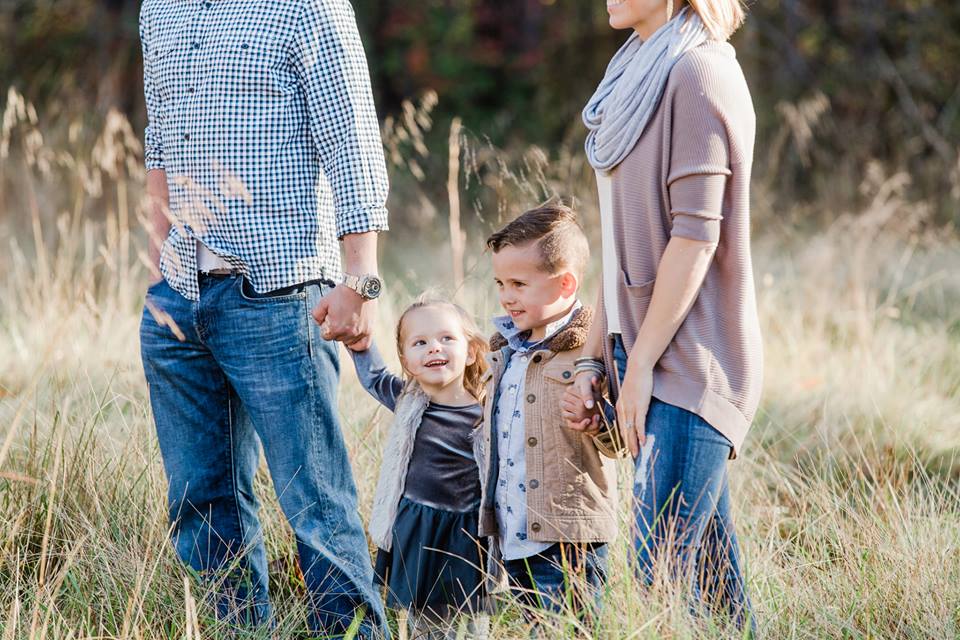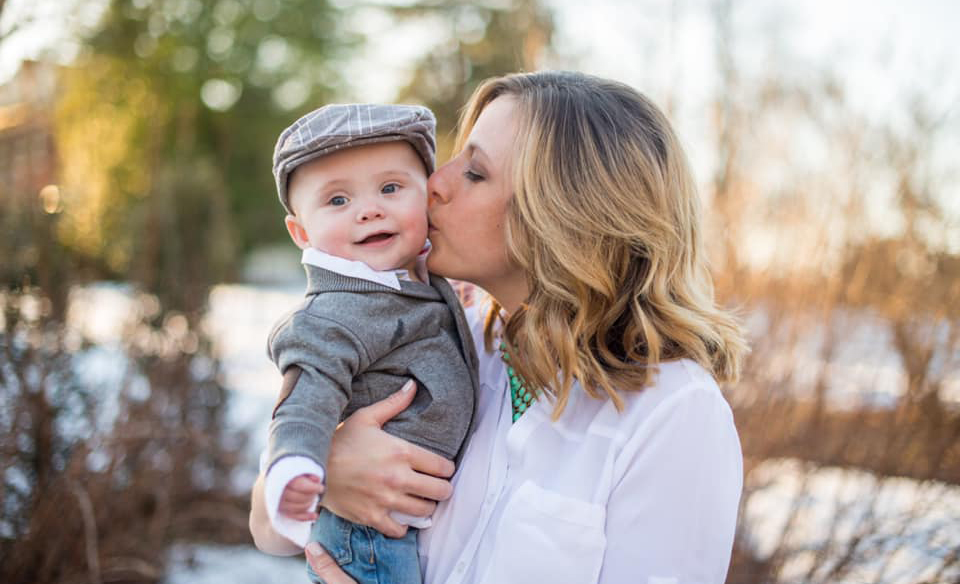It’s never going to be simple. Not with your kids, certainly not with mine and especially not with this one.
You see, my son came into this world with an opinion. He had things to say on Day One, and no words to explain it. It was a loud time in our lives and I have a very selective memory about it on most days.

Was he colic? …maybe?
Lactose intolerant? …I think so?
Was that it, though? …these days I’m thinking no.
It wasn’t until Anthony’s sister came along two years later that I could fully understand the ways our son was just more complicated than the kids I’d attempted to compare him to.
What were these patterns my friends were figuring out in their babies? What did they mean they were taking their nine-month-old to the aquarium — how? Why were people constantly offering me suggestions and “help?” Was it all in my head that my baby seemed to be a constant focus and concern? Was I just a weak mom for never being upto those public outings? Could I not hack it? Did I look like some kind of idiot in need of this constant assistance I was always being offered?
It is five years later and only now are things beginning to make sense. The things we’ve adapted to at home are coming into question again as he’s integrating with preschool and elementary school.
Let me be really clear in stating I don’t think anything is “wrong” with him. He is and always has been high energy, opinionated, curious about what’s going on over there much more than what we’re doing right here. He’s fidgety, busy, intense. He takes time to adapt, but once comfortable he likes to own the room. A lot of people are like this; most of my favorite ones, in fact.
The simplified psychology of our home goes as follows: I was the oldest and only girl among three siblings. Both of my brothers were high energy and one was diagnosed and medicated for ADHD in childhood (the other as an adult). My mom jokes about how I could watch a movie and barely notice my three years younger brother climbing on top of my head.
My husband was diagnosed and medicated for ADHD as a child, because of course I would choose him.
My husband understands our oldest child in ways I can’t, a fact which has been especially obvious since our second came along and more of the responsibility for the older one fell on him.
Our second baby was more gentle, more snuggly and all around less “busy.” She cried much less (so much less). But listen, I keenly understand gray areas. How kids and people are all different and I’m okay with it. I like that my husband “gets” our son, and that I “get” our daughter. Our bases are covered.
With that said, it isn’t uncommon in our house to hear a basketball bouncing for several waking hours in a row, much as I have tried to make rules against it. For said ball to hit the walls, the ceilings, the nearest drink, the chandelier. The fact is, I live with this husband, and this son, and I have figured out how to hear it without losing my mind because that is what I do.
For all these reasons it weighs on my heart to be sat down by a teacher who needs certain behaviors to be corrected. I am truly confused about where to start because all I have ever known is to adapt. Quite literally, for my whole life I have done it. I may not understand my kid as well as my husband does, but I do know how to live with his personality quite well.
As a starting point to trying, however, the pediatrician recently recommended this book to us, and here is what I can say as I am getting through it: There is no one answer and parenting is hard.
I don’t like to say my kid is a “difficult child,” I prefer “leader of fun times.” (LOL) He is a dominant personality, hungry for action, fidgety and a little impulsive. His temperament may wrack the nerves of calmer environments, but when he is challenged he is enthusiastic and extremely willing to participate.
(As an aside: This book isn’t entirely what it sounds like. It’s really helpful to understanding your own home and recognizing where your child’s triggers are though, so go ahead and grab it if you are feeling confused about where to start.)
For the parents of energetic boys out there — I’d first like to send big virtual HUGS. Because if one thing is clear by my experience with most of the boys I’ve ever been close to, this is going to be a factor all the way through school. My little boy’s agenda hasn’t changed much between five minutes old and five years — it is safe to say this is “him.”
From the most non-expert standpoint there is though, I would love to offer a few things I have learned for coping. These noticeably improve his behavior when I make a conscious effort toward them:
1) Put your phone down.
Watch how high he can jump, look more closely at the picture he drew and comment on the thoughtful details. Help him build a garage with the MegaBlocks and listen to every stutter intently as he gets through that long ass story.
This one might seem simple but you guys, pay attention tonight to how often you are touching that devil device and think about the message this is sending.
My two kids have this verbal crescendo that escalates anytime they are trying to tell us something while our phones are in our hand. They’re not dummies, they understand a genuine reaction vs. a fake “ah that’s awesome buddy” muttered without even looking up from the screen. I have caught myself finishing up a social media post or a text, looking up and then losing my shit because they have been doing something for 10 minutes that they know they are not allowed to.
Sure, they know better, but how confusing is this broken communication on my part? Why should they care when I am half-committed to this moment, walking around with one eye on my phone and one kinda sorta on them?
If you need to work from home or take a moment to respond to an email, explain that to them and excuse yourself. Tell them to entertain themselves for a moment and let them know you’ll be back. If you want them to respect you or anyone else, you have to show them how that works by treating them like human beings and respecting them too.
They’ll never just understand if we check our phones in the middle of Candyland, nor should they have to.
2) Learn to self-reflect.
This isn’t the same as beating yourself up, blaming yourself or fostering allll the guilt (we all do that just fine without help). What I’m talking about is self-reflecting in the productive way.
All this business I explained in the intro about where I came from, understanding who I chose to marry and why, why I haven’t seen my kid’s behavior as a problem deserving of more attention, etc. etc. This is the product of discoveries I made by really looking at myself as a factor in this. Because make no mistake about it, as one of the most influential people in my energetic son’s life, I and all my baggage make a difference. Your kid may have some bad habits, but assuming you’re a human being, so do you. What are they?
I have joked about my tendency to rely on wine to help me relax in the evenings — try to remember your kids don’t have bandaids like that. How can you transition in healthier ways so you can pass those habits onto them?
3) You have to match his energy.
Let’s be real, I’ll never have the physical energy that my son has, but it helps A LOT when I can at least make a concerted effort to raise it.
Get your nutrition right, exercise, create space for yourself to do things that make you flourish mentally and physically, and avoid things and people who negatively affect your mood.
Relating back to the wine, when I was using that to cope in the evenings, it was also wreaking havoc on my morning energy and daily mood. I was coming to my kids absolutely zapped at the end of the day and they were eating me alive. Especially my son.
When I manage to find a rhythm with my action-loving kid though, he always responds positively. With a clearer mind, I am able to create activities on the fly to steer his energy — make fun games out of bathtime and little races out of pajama time (last one dressed is a rotten egg!)
None of us wants to be yelling and threatening our way through each and every task. When I fuel myself with positive energy, the activities of the evening are naturally made more fun and productive.
4) You have to be the boss, the leader, the influencer.
Think about it: have you ever had a boss who never really told you what the hell he expected of you but definitely told you every time you screwed up, and it left you pretty much feeling like everything you did was wrong? Luckily we have the freedom to quit a job like that, but the only option our kids have in a situation like this is to mentally quit on us.
The hardest part for my house is getting on the same page with the hubbs to start with. We have different ideas about bouncing and throwing that basketball in the house, for example. So if I’m telling my son to knock it off, but my husband is telling him to “pass it over here!” the kid is going to be really confused about what the expectation is here.
We have to be good managers before they can see and respect us as the boss. It’s worth the effort of deciding together what that looks like so you can get a handle on it.

I can’t emphasize enough to you how little of an expert I am on kids. I was not your teenaged babysitter, people knew better. Never the camp counselor, by no means a psychologist and definitely no teacher. I never chose to surround myself with children on a daily basis before birthing a couple of my own.
But I am a learner, and I love my child enough to do that. I can observe relationships between things and people, ask all the why’s and try different things. I’ve changed bad habits in my own life and know the impact a little self confidence can make on one’s level of motivation. I hope you will take that for what it’s worth and appreciate the intent of this message from one “regular” mom with a pretty “regular” kid to another. I have no idea what I’m doing, these are just things that seem to have helped.
Please feel free to share if you have nuggets of your own. It’s always been the village for me, especially with this one. ➕

Related: All My Beautiful Minds // Four lessons from the year of diagnosing my child with ADHD



